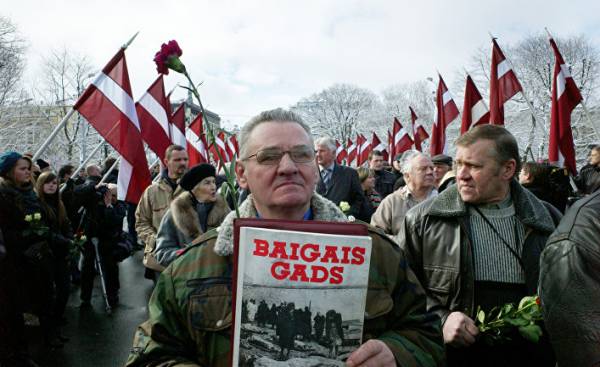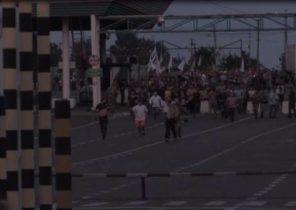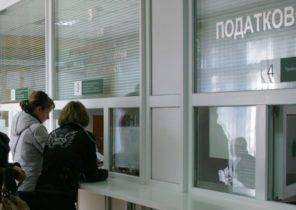
The appearance on the NATO page in the “Twitter” films about guerrillas is a matter of General position of the Alliance and a willingness to leave the Baltic States, and the flashmob in the “Facebook” in response to statements by Russian foreign Ministry about the “forest brothers” has achieved certain results, say experts in the field of communications.
At the same time, the community of political scientists argue that the flashmob is a short-term solution, “reaction to the attack in the conditions of information war”, while Lithuania need to think about educational programs that promote the history and positions of Lithuania in the EU and NATO.
Unknown to the West, but familiar to the Russian history
The Russian side who loves historical themes in conversation with neighbors, a recent story in the appearance of the movie on “forest brothers” was another accusation. After the briefing, Maria Zakharova, who criticized the content and General thrust represented NATO’s view of the resistance movement in the Baltic countries and publish in Facebook data archives, depicting the “forest brothers” violent criminals, representatives of the Lithuanian companies directly involved in the conversation with the foreign Ministry of Russia.
More than 12 thousand users of Facebook have left comments under the post of the foreign Minister with the hashtag #criminaliteitspreventie, and the Russian foreign Ministry has already asked social networks to the originator of the flash mob, Andrews Tapinas personally and promised to act on.
Statement of the MFA of Russia and the reaction of the Lithuanian society is not left unattended and abroad. Swedish politician, former Minister of foreign Affairs Carl Bildt, believes that the story of the Lithuanian partisans is little known to Europeans. “The history of the “forest brothers” — part of the history of modern times our part of Europe. Its too long concealed,” wrote Bildt on Twitter.
What is happening is another round of information war, in which the theme of the story in this case came to the fore. However, the flash mob, according to experts, has yielded positive results. “One of the cornerstones of information rules fights (called PR): “lesser” is good when “more” responding to his provocation and begins to answer. Thus they gain the same weight. (…) And this is not the Andrius (Tapinos — approx. ed.) heavier, this is a huge Russian office has especially weak.” So on the subject called the social network Google+ the famous Lithuanian specialist in public relations and now chief editor of the publication Verslo klase Aurelius, Chatkevicius.
Summer is the best time
The flash mob was a response to the reaction of the MFA of Russia published in the “Twitter” of the North Atlantic Alliance a video on the partisans of the Baltic States. Thus initially the message was given by NATO, not Lithuania. If it’s the right time to discuss this kind of topics? Specialist in public relations Liutauras, Ulevicius believes that the summer — “a good time to return to the “forgotten” topics, try to raise the right questions”.
“The alternative was to take up this topic in the working time, but it did not attract so much attention, there would be discussion. It is a question of formation of the position and agenda, which correspond to the General position of the Alliance and a willingness to leave the Baltic States, and the question of various measures that would ensure the security of the Baltic States not only with weapons, but with thoughts and ideas,” he Ulevicius.
To the question, did the flash mob to achieve your goals, and which of the two parties — the Ministry of foreign Affairs of the Russian Federation or Lithuanian citizens, headed by the initiator of the action Tapenade looked cheaper, Ulevicius said that there are achievements, and to reduce everything to the presence of “two parties” would be too easy. “It would be a simplification to reduce everything to having “two sides” — supporters of an initiative of Andrius Tapinas and employees of the foreign Ministry. Really need to assess a much larger number of groups of people who remained “silent observers”. It is their hearts and minds and there is a struggle. The Russian foreign Ministry with his statements dominated in a controlled information space, so one that happened to change the agenda and to return to the air this important issue for us, is already a great achievement,” he said.
According to him, the Russian foreign Ministry “would be happy if they managed to block the further arguments of Andrius Tapinas if the issues were isolated and propaganda tools of the Kremlin was able to dominate with one-sided information.”
“But now we see that the neutral part of the Russian media have noticed these issues and are beginning to respond to the opinion leaders — the process is. It is not necessary to hope that with the distribution of the foreign Ministry and the Kremlin lies easy to handle, not at all. However, to counter this propaganda content and must start with the question, dissemination of objective information. This is a classic stage of deconstruction of propaganda: once you have identified the source, you need to bring it to light, to present refuting the Kremlin’s position, the facts, the data. With the advent of the possibility of obtaining alternative information, irreversible processes occur when society (in this case we are talking about citizens of the Russian Federation) begins to analyze and deepen, opponents become neutral observers and neutral observers gradually become arguments in our support,” says Ulevicius.
Specialist in the field of communication sure that it is “not a one-battle propaganda, and its neutralization, is the process that essentially has no end and is infinite flow and the effect on public opinion.” “Therefore, the initiative of Andrius Tapinas is a good start, which has no rights (if we really want to win this information fight) at the end,” he added.
Is it possible the issues of the history of social networks in principle, if this becomes a never-ending process? Ulevicius sure that the question “is it possible” is irrelevant because the reality is that they’re solved. “The fact that we can’t always do this correctly and professionally, is a question of skill our society. Opponents are using this space to promote, so we have an obligation to respond not alternative lie, and objectivity, facts, data, research. Lies are not lies wins, but in a calm, objective facts nullify even the best-prepared propaganda campaign,” — he concluded.
As for the guerrilla movement in principle, Ulevicius said: “the Guerrilla resistance is a complicated practice, when less coordinated, weaker power tries to resist the power of controlling the situation. After the defeat of the Lithuanian partisan monopoly on the entire fixation of their activities and evaluation in the hands of the Soviet regime, so it is especially difficult to assess individual episodes when now it is absolutely unclear what were the real events. In such cases, you really can gain an open and consistent explanation (as possible) in these circumstances, exploration, and evaluation. For example, I wrote about the murder of Jews in his native Utena. If we tried to find the answer, who were the executioners, the response would not be received because the studies were conducted only “tips” and infinitely many propaganda clichés. But the real reason, the real criminals are not named. In such troubled waters without examining all the skeletons in the closet very easy to manipulate and to declare the various conspiracy theories. Take advantage of the Kremlin’s experts in propaganda, deliberately trying to link the struggle for independence with various crimes against humanity. Therefore, in this case Lithuania, our historians and society a lot of homework”.
Really makes the position of Lithuania is stronger
A movie about the partisans of the Baltic States was not in the best period of relations of Russia with the Baltic States and NATO as a whole, but political analyst Viktor Denisenko believes that the time for publication of the video was chosen on purpose. “We remember that in February was hacked account Agency BNS, and on February 16 for his visit was published on fake news affecting Lithuania. In that case, I think the coincidence of the date and execution of this special operation have been agreed. In this situation, I would consider this story as part of the ongoing information war, which in one form or another is conducted between Russia and, relatively speaking, the Western world, primarily the EU and USA, which are considered as a unity,” — he said.
According to him, it is worth Recalling that Lithuania and the Baltic States, in principle, are at the forefront of the information war taking place for several reasons. On the one hand, he says, the Baltic States joined the Soviet Union, and Moscow in General looks at the territory of the former Soviet Union as its natural sphere of influence. On the other hand, says Denisenko, the Baltic States have more than a dozen years belong to the EU and NATO “have moved into a different realm, a different geopolitical field, with which Russia confrontation.”
“I’m not too surprised by the situation and the narrative, moreover, that narrative of the “forest brothers” as thugs, collaborators, accomplices of fascists almost continuously comes from the Soviet era. In Russia in the early nineties he faded, not exploited, not heard in the formal political arena, but it has not disappeared. Therefore, it is now so easy again to get to the surface, shake off the dust and present to the public”, — said Denisenko.
Denisenko noticed that the history in the ensuing information war is used not new, but the situation with the answer of the Russian foreign Ministry video about the guerrillas and the flash mob, the political scientist has called “one of the most striking and poignant moments”. “Historical question in one way or another always been present in the context of relations between Lithuania and Russia, and especially did not disappear. For example, Lithuania considers that in 1940 there was the occupation of Lithuania, Russia and at one time took this view, but gradually, as the revival in Russia, relatively speaking, the Imperial narrative, there was a return of the Soviet version that Lithuania and the Baltic States voluntarily joined the USSR”, — he noted and added that in the current environment, this question is difficult to reach consensus.
“Lithuania believes that was the occupation and armed struggle against occupying forces is legitimate. Russia tries to reduce all the resistance movement to the level of terrorists. In principle, the problem of interpretation of common history is not new and it is quite clear that on the background of the information war of Russia and Lithuania (and wider — EU-Russia, USA) worsening of stories like this one, unfortunately, of course,” he concludes.
Denisenko looks at the initiative of Tapinas “how bright the answer, which no doubt attracts attention,” however, encourages to look at this subject more systematically. “It attracts attention and it’s a good flash mob shows how it was written that we will not allow to rewrite our history. But, I’d say a short-term solution. It is in the spirit of new media culture, but I would not overestimate this step. It was a reaction to the attack in terms of the information war. On the other hand, the problem of interpretation and use interpretation of history against Lithuania nowhere, perhaps, will not disappear in the near future. So you need to think about educational programs that promote the history of Lithuania in the EU and NATO. To inform our interpretation of the story to the Russian audience is almost impossible, so I would be focused on our Western partners, especially because information attacks go against us all,” he said, Recalling about the news related to posted in Lithuania, NATO.
The goal of information attacks Denisenko sees the desire to divide society in Lithuania, and in the camp of its allies: “Russia in this case is valid according to the classical principle of “divide and conquer”. The question is whether Lithuanian society the General consensus of the “forest brothers”, their role and importance, Denisenko said that “history is one thing which is very hard to assess unambiguously”.
“I understand that in war and guerrilla warfare, if we are talking about the resistance movement, there were different people. Nowhere is there absolute ideal society or group, so anything was possible. But in General, in Lithuania there is an understanding and consensus that it was a resistance movement, a movement for the independence of Lithuania. And about those historical events we need open and honest in Lithuania itself, because it really strengthens our position,” — said the analyst.
“There are opponents of such a strategy, who can say that any mention of the crimes of a man who belonged to this movement, will be used by Russia against us, as proof of the Russian version. But, in my opinion, there is no other way, and given that the movement for the restoration of Lithuania’s independence, we must talk about it honestly and openly. First and foremost it is the task of professional historians, but the debate should not confine itself solely within the academic society. Must be the popularization of science, in this case, these narratives need to reach and the society”, — summed up Denisenko.







